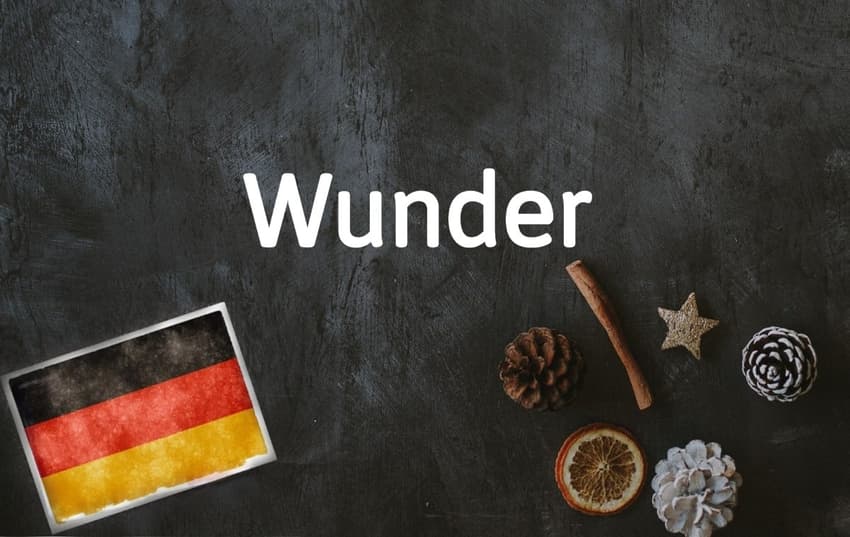German word of the day: Wunder

This word is everywhere in Germany throughout December, but it can be used all year round.
What does it mean?
‘Das Wunder’, which sounds like this, translates to ‘the wonder’ or ‘the miracle’ in English.
It typically refers to an extraordinary or inexplicable event that provokes awe or admiration due to its exceptional nature.
Why do I need to know it?
You will see this word in many different places this Christmas, but it doesn’t exclusively refer to religious miracles.
‘Wunder’ simply refers to something remarkable, miraculous or astonishing, encompassing a wide range of occurrences, from unexpected everyday events to natural phenomena.
This miraculous word has its roots in the Old High German term ‘wuntar’ from around the year 800, which evolved into the Middle High German ‘wunder’, the term that is still in use today.
You will also recognise that it's very similar to the English word 'wonder' which is also of Germanic origin.
How to use it:
Der Duft von Plätzchen backen verbreitet ein Gefühl von Wunder und Magie.
The scent of baking cookies spreads a feeling of wonder and magic.
Die Geburt Jesu wird als das größte Wunder der Weihnachtsgeschichte gefeiert.
The birth of Jesus is celebrated as the greatest miracle of the Christmas story.
Sie hat sich wie durch ein Wunder erholt.
She recovered as if by a miracle.
Ein medizinisches Wunder.
A medical miracle.
Comments
See Also
What does it mean?
‘Das Wunder’, which sounds like this, translates to ‘the wonder’ or ‘the miracle’ in English.
It typically refers to an extraordinary or inexplicable event that provokes awe or admiration due to its exceptional nature.
Why do I need to know it?
You will see this word in many different places this Christmas, but it doesn’t exclusively refer to religious miracles.
‘Wunder’ simply refers to something remarkable, miraculous or astonishing, encompassing a wide range of occurrences, from unexpected everyday events to natural phenomena.
This miraculous word has its roots in the Old High German term ‘wuntar’ from around the year 800, which evolved into the Middle High German ‘wunder’, the term that is still in use today.
You will also recognise that it's very similar to the English word 'wonder' which is also of Germanic origin.
How to use it:
Der Duft von Plätzchen backen verbreitet ein Gefühl von Wunder und Magie.
The scent of baking cookies spreads a feeling of wonder and magic.
Die Geburt Jesu wird als das größte Wunder der Weihnachtsgeschichte gefeiert.
The birth of Jesus is celebrated as the greatest miracle of the Christmas story.
Sie hat sich wie durch ein Wunder erholt.
She recovered as if by a miracle.
Ein medizinisches Wunder.
A medical miracle.
Join the conversation in our comments section below. Share your own views and experience and if you have a question or suggestion for our journalists then email us at [email protected].
Please keep comments civil, constructive and on topic – and make sure to read our terms of use before getting involved.
Please log in here to leave a comment.